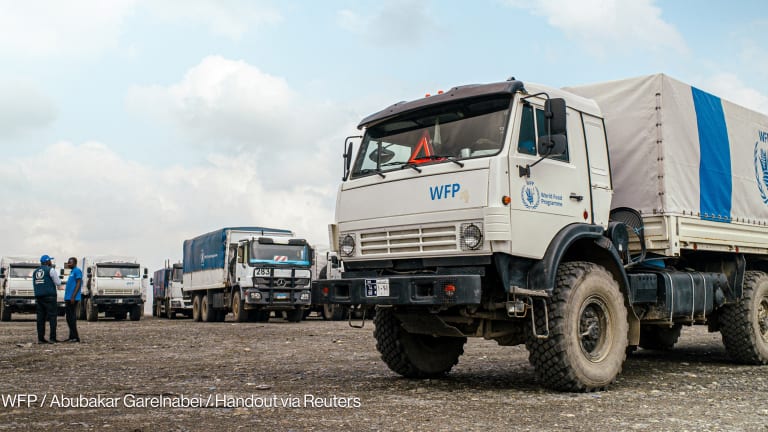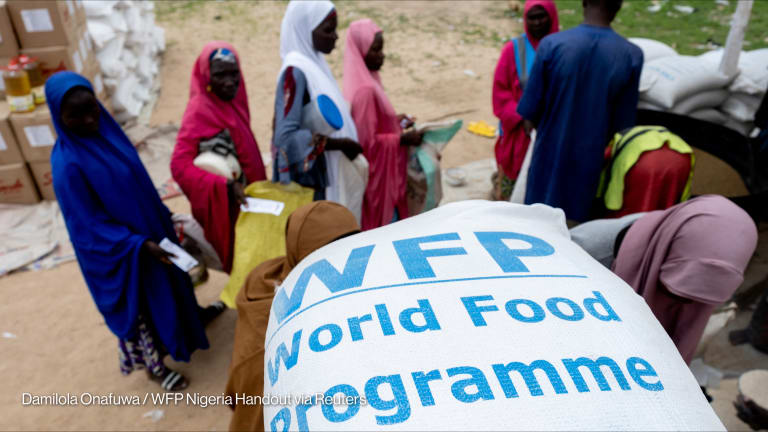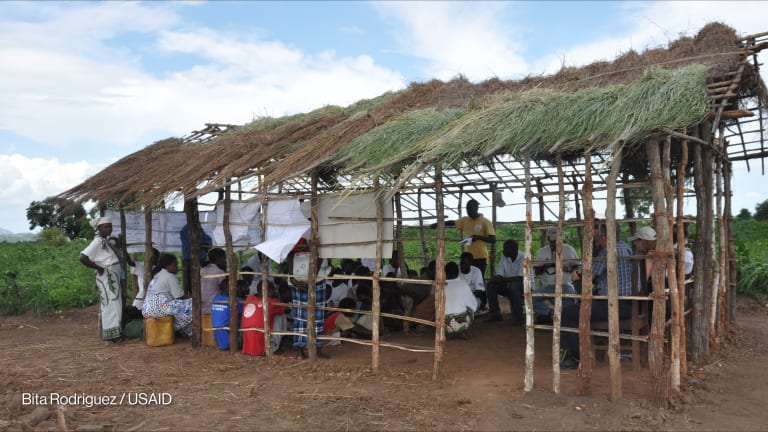
Ballooning prices of food, fuel, and fertilizer caused by Russia’s invasion of Ukraine could spur unrest and conflict worldwide, warned World Food Programme Chief Economist Arif Husain on Thursday.
Swift action is needed to help people who can no longer afford basic staples, he said during an online event hosted by the U.S. Institute of Peace.
“Don’t put people in a space where they have no choice … but to riot,” Husain said.
“This is what we saw in 2008. This is what we saw in 2011,” he added. “It was one person in Tunisia who put himself on fire because they couldn’t afford their food. That was the start of the Arab Spring. We are right there right now.”
Even before the war in Ukraine, food prices were at a 10-year high, while fuel was at a seven-year high, Husain said. In 2019 — before the COVID-19 pandemic — 135 million people were facing hunger crises, a number that today has since jumped to 345 million in 82 countries.
Fifty million people are in hunger emergencies — one step away from famine, Husain said.
'The house is burning': Beasley sounds food crisis alarm in US Congress
World Food Programme chief David Beasley warned of "catastrophic consequences" if donors don't act to meet funding gaps in the face of a global food crisis.
“What scares me is that this is not about one, two, or five or 10 countries. This is in 45 countries,” he said.
WFP assisted 116 million people in 2020 and 128 million people in 2021, and it aims to assist 152 million this year. That will cost $22 billion, only half of which is currently funded, Husain said.
As the number of people in need of urgent food assistance has risen, so have WFP’s costs — by 44%, or $952 million. That amount could feed 4 million people for an entire year, Husain said.
“When WFP is setting records, it’s not a good thing for the world,” he said. “And since 2020, WFP has been setting records.”
Getting grain out of Ukraine by opening up Black Sea ports would bring down food prices, helping with the current affordability crisis, he said.
He warned of the “copycat effect” of national export bans, which prompt other countries to impose their own.
“[An] export ban on vegetable oil or palm oil, that has significant consequences for the poorest of the poor because that’s what they need. It’s the staple commodities, and it’s the oil. That’s their diet,” Husain said. “When you raise the prices of both, what do you expect them to do? That is something where we need to make as much noise as possible.”
In the long term, exports must be diversified so that a shock to one country with a large share of a commodity market will not cause such a crisis in the future, he said.
“Many of the things we are talking about which need sorting out, which need solving, don’t take months; they take years,” Husain said. “And what happens is that as soon as the shock goes away, we forget about it till next time. But I’m hoping that the third time is the charm.”









